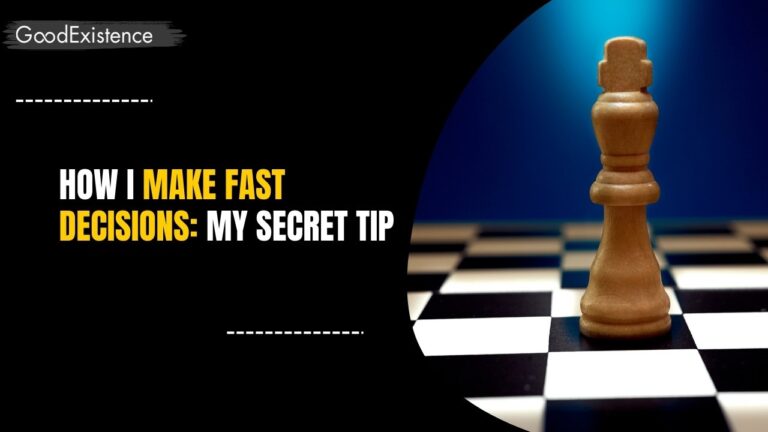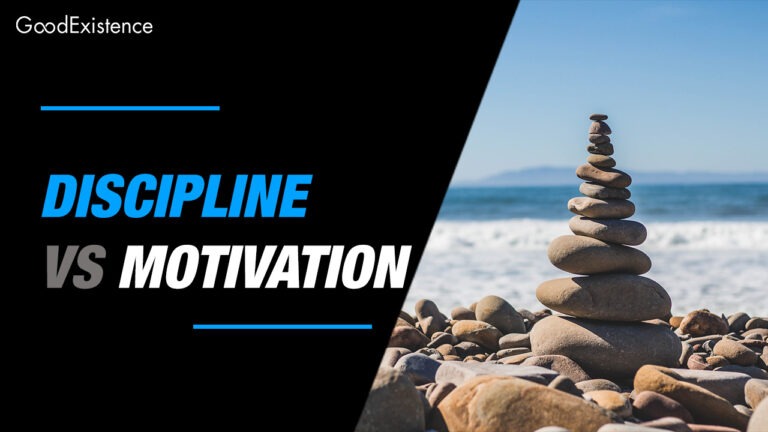
Do you ever feel like you're running on autopilot?
For years I did. My days were a blur of the same bad habits. Gaming. Overeating. Wasting time. I felt stuck in a loop I couldn't escape. It was like someone else was making my choices. The truth is I wasn't really making choices at all. I was just reacting.
Breaking free from that cycle which led to me losing over 110 pounds and building a life I actually love wasn’t about magic. It was about learning to think. Really think. Not just letting thoughts happen to me but actively engaging with them. This is called critical thinking and it's a skill. Anyone can learn it. It’s the tool that helps you move from reacting to your life to intentionally creating it.
Your Brain is a Muscle
Think of your mind like a muscle. If you only do the same easy movements every day it will get weak. You need to challenge it. Give it new problems to solve and new angles to consider. This doesn't have to be some boring academic exercise. It can be a simple part of your daily routine.
The goal isn't to become a professional debater. It's to stop taking your own thoughts at face value. It's about asking "Is this really true?" or "Is there a better way?" This simple habit can change everything. It’s how I started untangling the mess of excuses that kept me overweight and unhappy. I had to question the thoughts that told me "One more snack won't hurt" or "I'll start tomorrow."
25 Ways to Train Your Brain
Here are 25 simple exercises to help you build your critical thinking skills. Don't feel overwhelmed. Just pick one that sounds interesting and try it today.
-
Ask "Why" Five Times. When you have a problem or a strong belief ask "why?" Then ask "why?" to that answer. Keep going five times. You’ll often uncover the root cause instead of just seeing the surface-level issue.
-
Explain it to a Child. Take a complex topic you're trying to understand and try to explain it in the simplest terms possible. If you can't you probably don't understand it as well as you think.
-
Argue the Opposite. Pick a belief you hold strongly. For a few minutes try to genuinely argue for the opposite side. This isn't about changing your mind. It's about understanding other perspectives and finding weak spots in your own logic.
-
Fact-Check Something You See Online. Before you share or even believe a news story or a post take two minutes to find the original source or a second source to confirm it.
-
Identify the Motive. When you read an article or watch a video ask yourself: "Who created this and what do they want me to do or believe?"
-
Separate Observation from Interpretation. Practice describing a situation with only the facts. What did you see or hear? Then separately list your interpretations or judgments about what it means.
-
Keep a Decision Journal. For one week write down every significant decision you make. Note what the decision was why you made it and what you expected to happen. Review it later to see how things turned out.
-
Read a Chapter of Proverbs. The book of Proverbs in the Bible is packed with wisdom about decision-making cause and effect and human nature. Read a chapter and think about how one verse applies to your life right now.
-
Look for a Counterexample. When you think "all politicians are corrupt" or "all diet plans fail" actively look for one example that proves that statement false. This breaks black-and-white thinking.
-
Consider the Second-Order Consequences. Before making a choice don't just think about the immediate result. Ask "And then what?" What are the ripple effects of this decision?
-
Solve a Logic Puzzle. Spend ten minutes on a sudoku a crossword or another type of logic puzzle to get your brain working in a structured way.
-
Ask For Feedback. Ask a trusted friend or family member for their honest perspective on a situation you're facing. Listen without getting defensive.
-
Reverse Brainstorm. Instead of asking "How can I achieve this goal?" ask "How could I guarantee I fail at this goal?" Identifying what to avoid often clarifies what you need to do.
-
Watch a Documentary on a New Subject. Expose yourself to a topic you know nothing about. Pay attention to how the information is presented and what evidence is used.
-
Play "Spot the Fallacy." Learn about common logical fallacies like "straw man" or "ad hominem" arguments. Try to spot them in ads political debates or online comment sections.
-
Think About Your Thinking. At the end of the day take a moment to reflect on your thoughts. Did you jump to any conclusions? Were you overly negative or positive? This is called metacognition.
-
Pray for Wisdom. Before you make a big decision or enter a difficult conversation take a moment to pray for clarity discernment and wisdom. It shifts your focus from your own limited understanding to God's infinite perspective.
-
Unpack a Cliché. Take a common saying like "Everything happens for a reason." What does that actually mean? Is it always true? What are the implications of believing it?
-
Follow the Money. When analyzing a situation or an industry ask who benefits financially. This can often reveal hidden motivations and dynamics.
-
Draw a Mind Map. Take a central idea and draw it in the middle of a page. Then branch out with all the related ideas concepts and questions you can think of. This helps you see connections.
-
Imagine You're Giving Advice. If a friend came to you with your exact problem what would you tell them? We often have more clarity for others than we do for ourselves.
-
Wait 24 Hours. For non-urgent decisions give yourself a day to think. This prevents you from making emotional choices you might regret later.
-
Read a Book from a Different Era. Reading something written 100 or 200 years ago shows you how much assumptions and worldviews can change over time. It challenges the idea that our way of thinking is the only way.
-
Identify Your Information Bubble. What kind of news sources social media accounts and people do you listen to? Intentionally seek out one reasonable voice that disagrees with your bubble.
-
Define Your Terms. In a discussion or even in your own head make sure you’re clear on what key words mean. People often argue because they have different definitions for words like "success" "fairness" or "respect."
Start Small Stay Consistent
You don't need to do all of these at once. That's the kind of thinking that used to get me into trouble trying to fix everything overnight. That approach leads to burnout and failure.
Instead just pick one. Try it out. See how it feels. The goal is to build a habit of thoughtful engagement with the world around you and the world inside you. This is how you take back the controls. It's how you go from being a passenger in your life to being the one who prayerfully and thoughtfully steers the ship.
So what's one thought you can challenge today?





